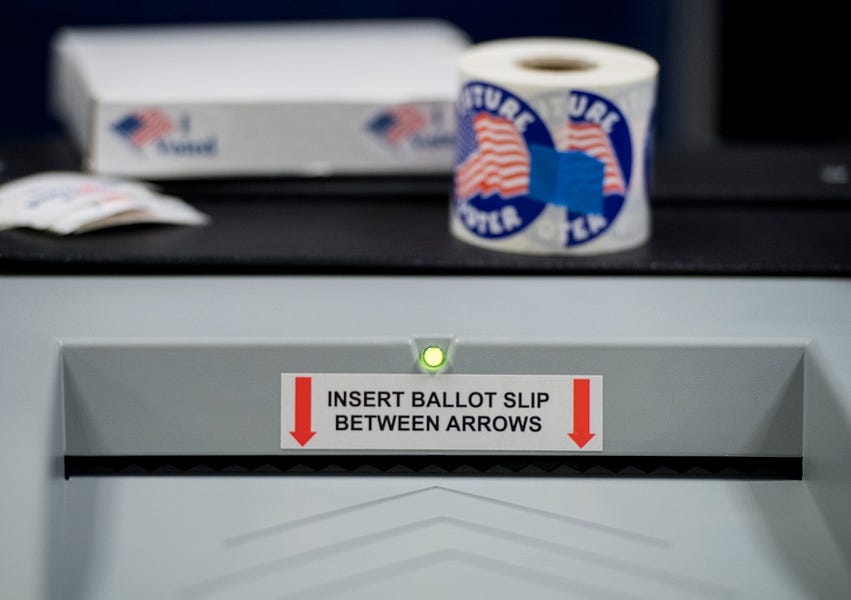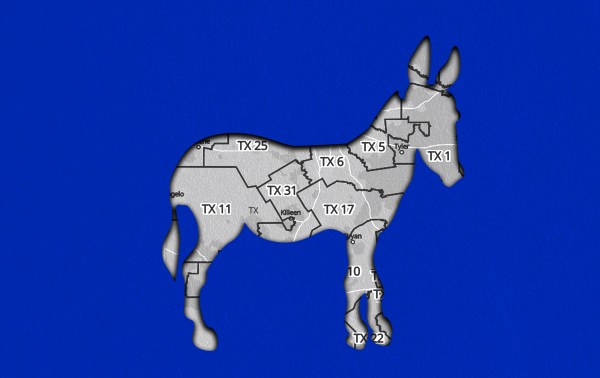A widely shared Facebook post from late February claims there was “proven fraud” in Michigan in the 2020 presidential election. The claims are recycled from earlier voter fraud allegations. As evidence, the post points to a forensics audit report from December 2020, released by Allied Security Operations Group and signed by Russell James Ramsland, a former Republican congressional candidate. The intended goal of the report was, as stated in the document, to “test the integrity of Dominion Voting Systems in how it performed in Antrim County, Michigan for the 2020 election.”
The full caption of the Facebook post reads as follows: “Judge Releases Dominion Audit Report: System ‘Designed’ to ‘Create Systemic Fraud 13th Circuit Court Judge Kevin Elsenheimer released the bombshell audit report. A Michigan judge has released the bombshell report on the audit of Dominion Voting Systems, revealing that the machines and their software were ‘designed’ to ‘create systemic fraud.’ The report covers the forensic audit of Dominion’s machines in Michigan’s Antrim County — which received national attention after it was discovered that 6,000 votes for President Donald Trump were ‘flipped’ to Democrat Joe Biden due to an ‘error.’ 13th Circuit Court Judge Kevin Elsenheimer ordered the report’s protective order to be lifted on Monday night, allowing the details of the audit to be unsealed and released to the public.The data firm that conducted the forensic audit of Dominion Voting Systems determined that the machines and software in Michigan showed that they were designed to create fraud and influence election results, the report reveals.”
As noted in a previous fact check, this audit report is not evidence of voter fraud in Michigan, and more specifically, is not evidence that Dominion Voting Systems “are designed to create fraud.”
Michigan Judge Kevin Elsenheimer called for the release of the report on December 14, according to the Detroit Free Press. This “forensic imaging” was ordered by Elsenheimer after William Bailey filed a lawsuit alleging issues with voting equipment in Antrim County, Michigan, stating that there were mistakes in how the county reported its unofficial results.
In a December 14 court hearing in Antrim County Michigan Attorney General Dana Nessel and Secretary of State Jocelyn Benson, approved the release of the report according to a statement from both the attorney general and secretary of state,“in order to demonstrate the ‘report’ is actually another in a long stream of misguided, vague and dubious assertions designed to erode public confidence in the November presidential election.”
The impetus behind the report was a reporting error in Antrim County on Election Night, which The Dispatch’s Alec Dent explained in an earlier fact check. “Antrim County revealed it had inadvertently misreported a number of votes in unofficial results, with state GOP Chairwoman Laura Cox claiming that the error was due to ‘tabulating software glitched and caused a miscalculation of the votes.’ However, Michigan’s secretary of state announced that it was not a software issue, but ‘user human error’ that led to the misreporting, and clarified that ‘the correct results always were and continue to be reflected on the tabulator totals tape and on the ballots themselves. Even if the error in the reported unofficial results had not been quickly noticed, it would have been identified during the county canvass.’”
Ramsland has previously been involved in spreading false voter fraud claims, as we explained earlier: “For more context, it’s worth mentioning that in a voter analysis from Ramsland, intended to prove voter fraud due to issues with Dominion Voting Systems, Ramsland confused voting jurisdictions in Minnesota for Michigan. He falsely claimed in his analysis, that jurisdictions in Minnesota, which he labeled Michigan, had more votes cast than the number of registered voters. In a November 19 press conference, Rudy Giuliani, a member of Trump’s legal team, cited Ramsland’s flawed affidavit as proof of voter fraud in the 2020 presidential election.”
Dominion Voting Systems also released a statement on December 16, addressing the “flawed” report. “The claims made in the report are technologically impossible. Dominion machines did not—and could not have—’switched’ or enabled the ‘switching’ of any votes. A hand count of the paper ballots as well as a review by any independent, federally accredited Voting System Test Laboratory (VSTL) will confirm this fact. The Michigan Attorney General and Secretary of State responded to the report, stating that it is ‘critically flawed, filled with dramatic conclusions without any evidence to support them’ and that the group that drafted the report ‘has no apparent expertise in election administration and technology.’ ”
As noted in a previous fact check on the matter, the Michigan elections director, Jonathan Brater, also addressed the Antrim County voter fraud allegations and said in a December 13 court filing that the audit report in question “makes a series of unsupported conclusions, ascribes motives of fraud and obfuscation to processes that are easily explained as routine election procedures or error corrections, and suggests without explanation that elements of election software not used in Michigan are somehow responsible for tabulation or reporting errors that are either nonexistent or easily explained.”
If you have a claim you would like to see us fact check, please send us an email at factcheck@thedispatch.com. If you would like to suggest a correction to this piece or any other Dispatch article, please email corrections@thedispatch.com.







Please note that we at The Dispatch hold ourselves, our work, and our commenters to a higher standard than other places on the internet. We welcome comments that foster genuine debate or discussion—including comments critical of us or our work—but responses that include ad hominem attacks on fellow Dispatch members or are intended to stoke fear and anger may be moderated.
With your membership, you only have the ability to comment on The Morning Dispatch articles. Consider upgrading to join the conversation everywhere.